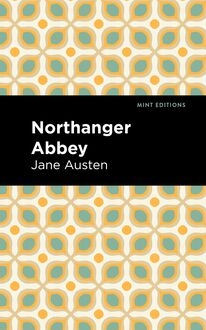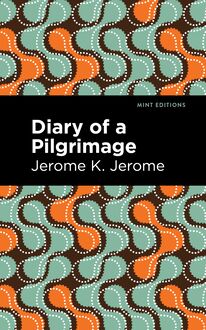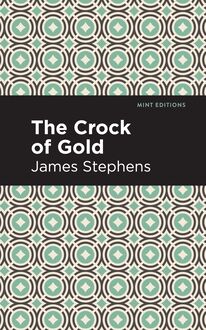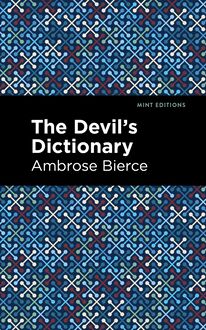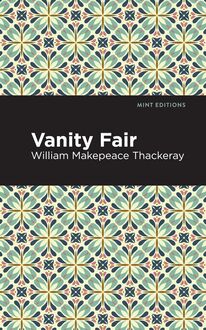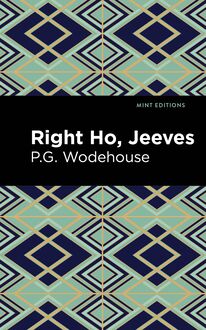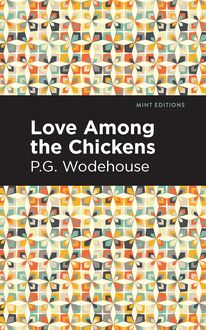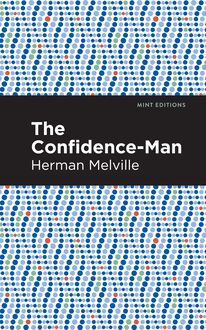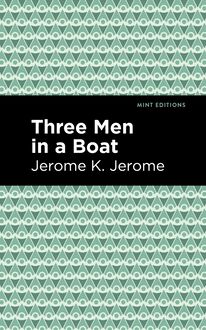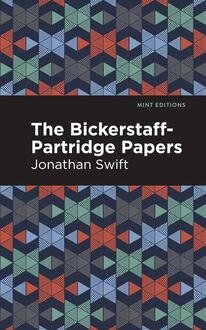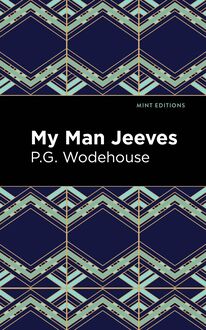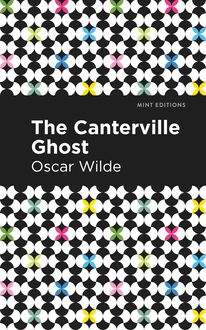-
 Univers
Univers
-
 Ebooks
Ebooks
-
 Livres audio
Livres audio
-
 Presse
Presse
-
 Podcasts
Podcasts
-
 BD
BD
-
 Documents
Documents
-
- Cours
- Révisions
- Ressources pédagogiques
- Sciences de l’éducation
- Manuels scolaires
- Langues
- Travaux de classe
- Annales de BEP
- Etudes supérieures
- Maternelle et primaire
- Fiches de lecture
- Orientation scolaire
- Méthodologie
- Corrigés de devoir
- Annales d’examens et concours
- Annales du bac
- Annales du brevet
- Rapports de stage
La lecture à portée de main
Vous pourrez modifier la taille du texte de cet ouvrage
Découvre YouScribe en t'inscrivant gratuitement
Je m'inscrisDécouvre YouScribe en t'inscrivant gratuitement
Je m'inscrisEn savoir plus
Vous pourrez modifier la taille du texte de cet ouvrage
En savoir plus

Description
Jeremy Garnet is an author from England. In hopes of writing his work-in-progress in peace, Garnet attempts to leave town when he hears that his old friend, Ukridge visits with his new wife, Millie. However, his escape plan is unrealized when Ukridge and Millie quickly seek him out. Though Garnet just wants a peaceful place to finish his novel, Ukridge attempts to entice him with a get-rich-quick scheme that involves selling farm fresh eggs. Hoping to start off their married life with a fortune, Millie and Ukridge praise their plan, and invite Garnet to come to stay on a farm with him in Dorset, promising that it would be like a vacation. Finally, Garnet decides to appease them, quickly regretting is decision. When managing a chicken farm proves to be much more difficult than Ukridge made it out to be, Garnet finds himself chasing down runaway chickens. However, while searching for chickens, Garnet found the girl of his dreams. Phyllis lives at the farm next door. She is smart and loves Garnet’s work. However, when Garnet realizes that Phyillis’ father is not fond of him, but favors another man who is enamored by Phyillis, Garnet hatches a plan to win his approval and win Phyillis’ heart.
First published in 1906, Love Among the Chickens is a timeless romantic comedy filled with the unexpected. With witty wordplay and dramatic events, P.G Wodehouse crafts prose that invites laughter and levity. Love Among the Chickens introduces one of Wodehouse’s funniest characters, Ukridge, through the depiction of the characters first eccentric scheme. With classic characters, hilarious prose, and sweet romance, Love Among the Chickens remains relevant and amusing to contemporary readers.
This edition of Love Among the Chickens by P.G Wodehouse features a new, eye-catching cover design and is printed in an easy-to-read font, providing an accessible reading experience to a modern audience.
Sujets
Informations
| Publié par | Mint Editions |
| Date de parution | 12 janvier 2021 |
| Nombre de lectures | 0 |
| EAN13 | 9781513275772 |
| Langue | English |
| Poids de l'ouvrage | 2 Mo |
Informations légales : prix de location à la page 0,0450€. Cette information est donnée uniquement à titre indicatif conformément à la législation en vigueur.
Extrait
Love Among the Chickens
P.G. Wodehouse
Love Among the Chickens was first published in 1906.
This edition published by Mint Editions 2021.
ISBN 9781513270777 | E-ISBN 9781513275772
Published by Mint Editions®
minteditionbooks .com
Publishing Director: Jennifer Newens
Design & Production: Rachel Lopez Metzger
Typesetting: Westchester Publishing Services
C ONTENTS I. A L ETTER W ITH A P OSTSCRIPT II. M R. AND M RS . S. F. U KRIDGE III. W ATERLOO S TATION, S OME F ELLOW- T RAVELLERS, AND A G IRL W ITH B ROWN H AIR IV. T HE A RRIVAL V. B UCKLING T O VI. M R. G ARNET’S N ARRATIVE— H AS TO D O W ITH A R EUNION VII. T HE E NTENTE C ORDIALE IS S EALED VIII. A L ITTLE D INNER AT U KRIDGE’S IX. D IES I RAE X. I E NLIST THE S ERVICES OF A M INION XI. T HE B RAVE P RESERVER XII. S OME E MOTIONS AND Y ELLOW L UPIN XIII. T EA AND T ENNIS XIV. A C OUNCIL OF W AR XV. T HE A RRIVAL OF N EMESIS XVI. A C HANCE M EETING XVII. O F A S ENTIMENTAL N ATURE XVIII. U KRIDGE G IVES M E A DVICE XIX. A SKING P APA XX. S CIENTIFIC G OLF XXI. T HE C ALM B EFORE THE S TORM XXII. T HE S TORM B REAKS XXIII. A FTER THE S TORM
I
A L ETTER W ITH A P OSTSCRIPT
“ A gentleman called to see you when you were out last night, sir,” said Mrs. Medley, my landlady, removing the last of the breakfast things.
“Yes?” I said, in my affable way.
“A gentleman,” said Mrs. Medley meditatively, “with a very powerful voice.”
“Caruso?”
“Sir?”
“I said, did he leave a name?”
“Yes, sir. Mr. Ukridge.”
“Oh, my sainted aunt!”
“Sir!”
“Nothing, nothing.”
“Thank you, sir,” said Mrs. Medley, withdrawing from the presence.
Ukridge! Oh, hang it! I had not met him for years, and, glad as I am, as a general thing, to see the friends of my youth when they drop in for a chat, I doubted whether I was quite equal to Ukridge at the moment. A stout fellow in both the physical and moral sense of the words, he was a trifle too jumpy for a man of my cloistered and intellectual life, especially as just now I was trying to plan out a new novel, a tricky job demanding complete quiet and seclusion. It had always been my experience that, when Ukridge was around, things began to happen swiftly and violently, rendering meditation impossible. Ukridge was the sort of man who asks you out to dinner, borrows the money from you to pay the bill, and winds up the evening by embroiling you in a fight with a cabman. I have gone to Covent Garden balls with Ukridge, and found myself legging it down Henrietta Street in the grey dawn, pursued by infuriated costermongers.
I wondered how he had got my address, and on that problem light was immediately cast by Mrs. Medley, who returned, bearing an envelope.
“It came by the morning post, sir, but it was left at Number Twenty by mistake.”
“Oh, thank you.”
“Thank you, sir,” said Mrs. Medley.
I recognised the handwriting. The letter, which bore a Devonshire postmark, was from an artist friend of mine, one Lickford, who was at present on a sketching tour in the west. I had seen him off at Waterloo a week before, and I remember that I had walked away from the station wishing that I could summon up the energy to pack and get off to the country somewhere. I hate London in July.
The letter was a long one, but it was the postscript which interested me most.
“… B Y THE WAY, AT Y EOVIL I ran into an old friend of ours, Stanley Featherstonehaugh Ukridge, of all people. As large as life—quite six foot two, and tremendously filled out. I thought he was abroad. The last I heard of him was that he had started for Buenos Ayres in a cattle ship, with a borrowed pipe by way of luggage. It seems he has been in England for some time. I met him in the refreshment-room at Yeovil Station. I was waiting for a down train; he had changed on his way to town. As I opened the door, I heard a huge voice entreating the lady behind the bar to ‘put it in a pewter’; and there was S. F. U. in a villainous old suit of grey flannels (I’ll swear it was the one he had on last time I saw him) with pince-nez tacked on to his ears with ginger-beer wire as usual, and a couple of inches of bare neck showing between the bottom of his collar and the top of his coat—you remember how he could never get a stud to do its work. He also wore a mackintosh, though it was a blazing day.
“He greeted me with effusive shouts. Wouldn’t hear of my standing the racket. Insisted on being host. When we had finished, he fumbled in his pockets, looked pained and surprised, and drew me aside. ‘Look here, Licky, old horse,’ he said, ‘you know I never borrow money. It’s against my principles. But I must have a couple of bob. Can you, my dear good fellow, oblige me with a couple of bob till next Tuesday? I’ll tell you what I’ll do. (In a voice full of emotion). I’ll let you have this (producing a beastly little threepenny bit with a hole in it which he had probably picked up in the street) until I can pay you back. This is of more value to me than I can well express, Licky, my boy. A very, very dear friend gave it to me when we parted, years ago… It’s a wrench… Still,—no, no… You must take it, you must take it. Licky, old man, shake hands, old horse. Shake hands, my boy.’ He then tottered to the bar, deeply moved, and paid up out of the five shillings which he had made it as an after-thought. He asked after you, and said you were one of the noblest men on earth. I gave him your address, not being able to get out of it, but if I were you I should fly while there is yet time.”
I T SEEMED TO ME THAT the advice was good and should be followed. I needed a change of air. London may have suited Doctor Johnson, but in the summer time it is not for the ordinary man. What I wanted, to enable me to give the public of my best (as the reviewer of a weekly paper, dealing with my last work, had expressed a polite hope that I would continue to do) was a little haven in the country somewhere.
I rang the bell.
“Sir?” said Mrs. Medley.
“I’m going away for a bit,” I said.
“Yes, sir.”
“I don’t know where. I’ll send you the address, so that you can forward letters.”
“Yes, sir.”
“And, if Mr. Ukridge calls again…”
At this point a thunderous knocking on the front door interrupted me. Something seemed to tell me who was at the end of that knocker. I heard Mrs. Medley’s footsteps pass along the hall. There was the click of the latch. A volume of sound rushed up the stairs.
“Is Mr. Garnet in? Where is he? Show me the old horse. Where is the man of wrath? Exhibit the son of Belial.”
There followed a violent crashing on the stairs, shaking the house.
“Garnet! Where are you, laddie? Garnet!! G ARNET !!!!!”
Stanley Featherstonehaugh Ukridge was in my midst.
II
M R. AND M RS. S. F. U KRIDGE
I have often thought that Who’s Who, though a bulky and well-meaning volume, omits too many of England’s greatest men. It is not comprehensive enough. I am in it, nestling among the G’s:—
“Garnet, Jeremy, o.s. of late Henry Garnet, vicar of Much Middlefold, Salop; author. Publications: ‘The Outsider,’ ‘The Manoeuvres of Arthur.’ Hobbies: Cricket, football, swimming, golf. Clubs: Arts.”
But if you search among the U’s for U KRIDGE , Stanley Featherstonehaugh, details of whose tempestuous career would make really interesting reading, you find no mention of him. It seems unfair, though I imagine Ukridge bears it with fortitude. That much-enduring man has had a lifetime’s training in bearing things with fortitude.
He seemed in his customary jovial spirits now, as he dashed into the room, clinging on to the pince-nez which even ginger-beer wire rarely kept stable for two minutes together.
“My dear old man,” he shouted, springing at me and seizing my hand in the grip like the bite of a horse. “How are you, old buck? This is good. By Jove, this is fine, what?”
He dashed to the door and looked out.
“Come on Millie! Pick up the waukeesis. Here’s old Garnet, looking just the same as ever. Devilish handsome fellow! You’ll be glad you came when you see him. Beats the Zoo hollow!”
There appeared round the corner of Ukridge a young woman. She paused in the doorway and smiled pleasantly.
“Garny, old horse,” said Ukridge with some pride, “this is her ! The pride of the home. Companion of joys and sorrows and all the rest of it. In fact,” in a burst of confidence, “my wife.”
I bowed awkwardly. The idea of Ukridge married was something too overpowering to be readily assimilated.
“Buck up, old horse,” said Ukridge encouragingly. He had a painful habit of addressing all and sundry by that title. In his school-master days—at one period of his vivid career he and I had been colleagues on the staff of a private school—he had made use of it interviewing the parents of new pupils, and the latter had gone away, as a rule, with a feeling that this must be either the easy manner of Genius or due to alcohol, and hoping for the best. He also used it to perfect strangers in the streets, and on one occasion had been heard to address a bishop by that title, rendering that dignitary, as Mr. Baboo Jaberjee would put it, sotto voce with gratification. “Surprised to find me married, what? Garny, old boy,”—sinking his voice to a whisper almost inaudible on the other side of the street—“take my tip. Go and jump off the dock yourself. You’ll feel another man. Give up this bachelor business. It’s a mug’s game. I look on you bachelors as excrescences on the social system. I regard you, old man, purely and simply as a wart. Go and get married, laddie, go and get married. By gad, I’ve forgotten to pay the cabby. Lend me a couple of bob, Garny old chap.”
He was out of the door and on his way downstairs before the echoes of his last remark had ceased to shake the window. I was left to entertain Mrs. Ukridge.
So far her share in the conversation had been confined to the pleasant smile which was apparently her chief form of expression. Nobody talked very much when Ukridge was present. She sat on the edge of the armchair, looking very small
-
 Univers
Univers
-
 Ebooks
Ebooks
-
 Livres audio
Livres audio
-
 Presse
Presse
-
 Podcasts
Podcasts
-
 BD
BD
-
 Documents
Documents
-
Jeunesse
-
Littérature
-
Ressources professionnelles
-
Santé et bien-être
-
Savoirs
-
Education
-
Loisirs et hobbies
-
Art, musique et cinéma
-
Actualité et débat de société
-
Jeunesse
-
Littérature
-
Ressources professionnelles
-
Santé et bien-être
-
Savoirs
-
Education
-
Loisirs et hobbies
-
Art, musique et cinéma
-
Actualité et débat de société
-
Actualités
-
Lifestyle
-
Presse jeunesse
-
Presse professionnelle
-
Pratique
-
Presse sportive
-
Presse internationale
-
Culture & Médias
-
Action et Aventures
-
Science-fiction et Fantasy
-
Société
-
Jeunesse
-
Littérature
-
Ressources professionnelles
-
Santé et bien-être
-
Savoirs
-
Education
-
Loisirs et hobbies
-
Art, musique et cinéma
-
Actualité et débat de société
- Cours
- Révisions
- Ressources pédagogiques
- Sciences de l’éducation
- Manuels scolaires
- Langues
- Travaux de classe
- Annales de BEP
- Etudes supérieures
- Maternelle et primaire
- Fiches de lecture
- Orientation scolaire
- Méthodologie
- Corrigés de devoir
- Annales d’examens et concours
- Annales du bac
- Annales du brevet
- Rapports de stage

